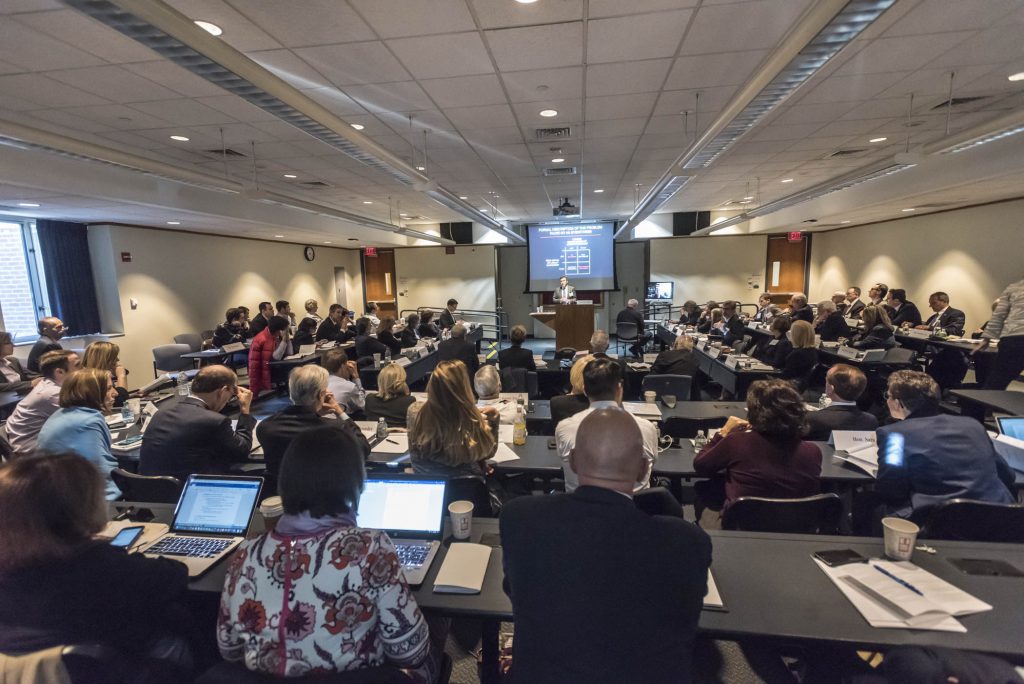The Judicial Conference of the United States, a policy-making body that governs the federal court system, held a conference at Boston College Law School on October 26 and 27. The event featured a biannual meeting of the Advisory Committee on Evidence Rules and a symposium discussing the validity and future of forensic expert testimony.
Professor Daniel Coquillette, who serves as Reporter to the Committee on Rules of Practice and Procedure, was instrumental in bringing the forum to BC Law and highlighted its significance, saying that the meeting “was of the greatest importance in reconciling the latest scientific theories with the needs of the US justice system. It was a great honor that we were selected to host this major judicial event.”
Nearly thirty judges, scientists, practitioners, and academics from around the United States and United Kingdom provided the Advisory Committee with scientific, practical, and legal presentations about the role of forensic expert testimony in US courts. This information was critical to Advisory Committee members as they grappled with potential changes or additions to Rule 702, which sets federal standards for forensic expert testimony.
The validity of forensic evidence and testimony has come under increased scrutiny from government officials, advocacy groups, and think tanks in recent years, culminating in a September 2016 report from the President’s Council of Advisors on Science and Technology (PCAST) that addressed the validity of forensic science in criminal cases. This report was the final submission from President Obama’s PCAST, and called for more clarity about the scientific standards for validity and reliability of forensic methods, and more evaluation of specific forensic methods.
The Trump Administration and Justice Department, led by Ted Hunt, the department’s new Senior Advisor on Forensics, are still grappling with the report’s findings and recommendations. Hunt was present at BC Law to address the Advisory Committee, and presented his concerns about the scope of the report and the effect its recommendations could have in criminal courts across the country.
The Advisory Committee will make its recommendations on proposed amendments and additions to the Federal Rules of Evidence against this controversial backdrop.
The event afforded students at BC Law the opportunity to observe all the proceedings as well as to network with the visiting dignitaries at a reception in the Danielle R. Coquillette Rare Book Room and at a Boston College football game. Pictures of the reception and game are among those in the accompanying slideshow.


